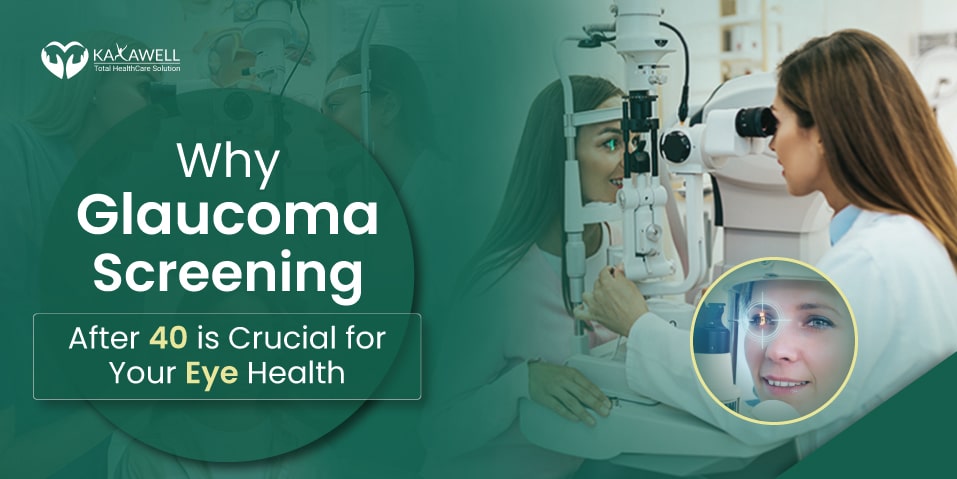My grandmother went blind from glaucoma. She was 68 when we realized she’d been hitting the furniture for months, making excuses about ‘dim lighting’ and ‘clumsy moments.’ The truth? Her vision had been deteriorating for years, and nobody caught it. That’s the harsh reality of glaucoma—it steals your sight so quietly that most people don’t realize anything’s wrong until it’s too late. That’s why glaucoma screening after 40 is so important; early detection can make all the difference in preventing irreversible vision loss.
This is precisely why glaucoma screening becomes non-negotiable once you hit 40. We are talking about one of the world’s leading causes of permanent blindness here, affecting over 70 million people globally. Most of this blindness could have been prevented with regular eye exams. But here’s what most people don’t know: waiting until you notice symptoms means you’ve already lost vision you’ll never get back. Understanding glaucoma causes—like increased eye pressure, age, and genetics—can help you take action before it’s too late.
Understanding the Risk Factors of Glaucoma
Turning 40 isn’t just about finding your first gray hair or needing reading glasses. Your glaucoma risk doubles with each passing decade after 40. But age isn’t the only culprit here. If your parents or siblings had glaucoma, your chances shoot up dramatically; we’re talking 4 to 9 times higher risk than someone with no family history.
Then there are the medical troublemakers: diabetes and high blood pressure. These conditions mess with blood flow to your optic nerve and can push your intraocular pressure into dangerous territory. Speaking of pressure, something surprises many patients: You can develop glaucoma even with normal eye pressure readings. It’s one of those age-related eye conditions that keeps eye doctors on their toes because it doesn’t always follow the textbook rules. African Americans and Hispanics face particularly high risks, especially for certain aggressive forms of the disease.
Importance of Early Detection Through Regular Eye Exams
Here’s what makes glaucoma so sneaky – it doesn’t hurt. There’s no moment when you suddenly can’t see. Instead, it nibbles away at your peripheral vision so gradually that your brain compensates for the missing pieces. Most glaucoma patients say they had no idea anything was wrong until their regular eye exams caught it.
This is where modern eye testing becomes your secret weapon. During a comprehensive eye checkup, your eye doctor uses several clever techniques to catch glaucoma before you notice it yourself. They’ll measure the pressure inside your eye with tonometry – it sounds scary, but it’s painless. The visual field test maps out your entire field of vision, spotting those sneaky blind spots that are developing without your knowledge. Then there’s OCT scanning, which takes incredibly detailed pictures of your optic nerve, revealing invisible damage during a regular eye exam.
An eye test after 40 should include these advanced screenings. Think of it as getting a detailed report card for your eyes – one that could save your sight.
How Screening Helps Prevent Vision Loss
Here’s the brutal truth about glaucoma damage – once it’s gone, it’s gone forever. But here’s the hopeful truth – early detection of glaucoma can stop this damage in its tracks. We’re talking about catching the disease while it’s still in stealth mode before it’s stolen any noticeable vision.
When caught early, glaucoma becomes much more manageable. Treatment might start with simple eye drops that lower eye pressure, often just one drop per day. Some patients need laser treatments that help their eyes drain fluid more effectively. Glaucoma surgery can create new drainage channels in more advanced cases, but nobody wants to get to that point.
The beautiful thing about regular screening is that it can prevent vision loss entirely. Instead of dealing with progressive blindness, you’re dealing with a chronic condition that responds well to treatment. That’s a good trade-off for attending your eye appointments.
Choosing the Right Eye Hospital for Glaucoma Screening
Not all eye clinics are created equal when it comes to glaucoma screening. You want a place that takes this seriously, with modern equipment and doctors who know their stuff. Look for facilities with the latest OCT machines, computerized visual field analyzers, and high-resolution imaging systems. These aren’t just fancy gadgets—they’re essential tools that can detect glaucoma changes months or even years earlier than outdated methods. For the best care, trust the best eye doctor in India who combines expertise with advanced diagnostic technology.
The expertise of your ophthalmologist matters tremendously. You want someone who sees glaucoma patients regularly, not just occasionally. These specialists understand the subtle signs and know how to tailor screening schedules based on your specific risk factors. They’re also better at explaining what your test results mean – and trust me, that matters when you’re trying to understand your eye health.
Here’s an interesting tip: An Eye Hospital that offers advanced glaucoma surgery often has the most comprehensive diagnostic capabilities and experienced teams. Even if you never need surgery, these facilities typically provide more thorough routine eye care and detailed ophthalmologist consultation services.
Conclusion
Looking back at my grandmother’s story, I can’t help but think how different things might have been with proper glaucoma screening. She lived in an era when people only saw eye doctors when something was wrong. We know better now. After 40, regular eye exams aren’t optional—they’re essential insurance for your vision. Don’t become another statistic in the glaucoma blindness numbers. Schedule your comprehensive eye checkup today at the best eye hospital near me, because your future self will thank you for the vision you helped preserve.
